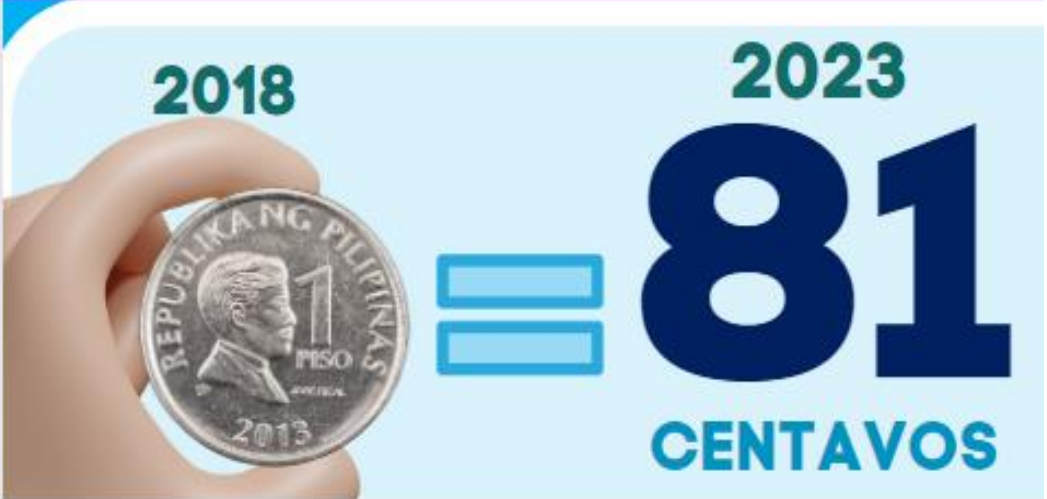
In January 2024, the headline inflation in Aklan experienced a deceleration, increasing at a slower rate of 3.0 percent compared to the 3.9 percent recorded in the previous month. This reflects a notable decline of 4.9 percentage points from the 7.9 percent inflation observed in January 2023. Aklan's inflation rate exceeds both the national and regional rates, standing at 2.8 percent and 2.0 percent, respectively.

Among the major commodity groups, the primary factor contributing to the downward trend in inflation this month among major commodity groups was Food and non-alcoholic beverages, registering a decrease from 9.9 percent in December 2023 to 7.8 percent. Following this, Housing, water, electricity, gas, and other fuels displayed a decrease in inflation from -4.5 percent in the previous month to -4.9 percent in January. Additionally, Transport exhibited a decline in inflation from -1.4 percent a month ago to -2.1 percent reported this month.

Other major commodity groups also contributed to the downtrend of the province’s inflation rate in January 2024:
a. Clothing and footwear, 0.1 percent;
b. Furnishings, household equipment and routine household maintenance, 0.6 percent; and
c. Information and communication, 0 percent; and
d. Financial services, -0.1 percent.
Inflation of the rest of the major commodities remained stable in January 2024 from 2023.
Moreover, the slower inflation in food commodity was primarily due to a reduced uptick in the prices of Vegetables, tubers, plantains, cooking bananas, and pulses, which decreased to -15.5 percent from -2.5 percent in the previous month. Subsequently, Fish and other seafoods also experienced a slower inflation rate, registering 1.1 percent this month compared to 5.5 percent in December 2023, while Meat and other parts of slaughtered land animals saw a decline to 22.1 percent in January 2024 from 25.1 percent in December 2023.
Milk, other dairy products and eggs also exhibited slower inflation of 6.0 percent from 6.6 percent in the past month, while Sugar, confectionery and desserts showed -7.2 percent inflation compared to -6.6 percent in December 2023.
Conversely, this month showed faster inflation of Rice, increasing to 23.3 percent from the previous month's 19.2 percent, along with an uptick in Fruits and nuts, which escalated to 10.4
percent from 3.5 percent. Additionally, Ready-made food and other miscellaneous food products displayed a marginal inflation of 2.1 percent, a slight increase from 2.0 percent in the previous month. Moreover, Oils and fats experienced a slight increase to 0.9 percent during the reference period, up from 0.7 percent in December 2023
Purchasing Power of Peso

The purchasing power of peso (PPP) is inversely associated with inflation, which implies that as inflation increases, the purchasing power of peso decreases. PPP in January 2024 was valued at 81 centavos, lower than 84 centavos recorded PPP in the same month last year.
This indicates that a 1000-peso worth of goods and services bought in 2018 will require a person an additional P233.00 in order to buy them in January 2024.
Moreover, 8.2 percent inflation in food commodities results in an additional P284.00 this January
2024 in order to buy the same basket of food commodities worth P1000.00 in 2018.

EXPLANATORY TEXT
Consumer Price Index (CPI) - is an indicator of the change in the average retail prices of a fixed basket of goods and services commonly purchased by the households relative to a base year. It shows how much on the average, prices of goods and services have increased or decreased from a particular reference period.
The CPI Report was derived from the results of the 2018-based CPI survey comprised of thirteen (13) major commodity groups. These are the following: Food and Non-alcoholic Beverages; Alcoholic Beverages and Tobacco; Clothing and Footwear; Housing, Water, Electricity, Gas and Other Fuels; Furnishings, Household Equipment and Routine Maintenance of the House;
Health; Transport; Information and Communication Services; Recreation, Sport and Culture; Education; Restaurants and Accommodation Services; Financial Services; and Personal Care and Miscellaneous Goods and Services.
Inflation rate is defined as the annual rate of change or the year-on-year change in the CPI.
Purchasing power of peso is a measure of the real value of the peso in a given period relative to a chosen reference period.
Market basket is a term used to refer to a sample of goods and services that are commonly purchased and bought by an average Filipino household.
Base period or Base Year is the period, usually a year, at which the index number is set to 100. It is the reference point of the index number series. In this report, 2018 is used as`
the base period
ENGR. ANTONET B. CATUBUAN
Chief Statistical Specialist

